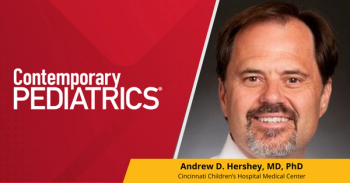
Using parental reports of symptoms in children with severe neurological impairment
A report examines how parental symptom reports could impact medication needs to children with severe neurological impairment.
Children who have severe neurological impairment are being administered a number of medications to manage symptoms, but these children cannot report on their symptoms. A
Investigators ran a cross-section study from April 2019 to December 2019 that used a structured parent-reported symptom data that was linked with clinical and pharmacy data. The data were from a single-center, large, hospital-based special health care needs clinic. The participants were aged 1 to 18 years, had severe neurological impairment, and were given 5 or more prescribed medications. The parents described their child’s symptoms using the validated 28-symptom Memorial Symptom Assessment Scale during routine clinical visits and this information was merged with clinical and pharmacy data.
There were 100 patients included in the study. Sixty-two of the children had 3 or more complex chronic conditions and 76 of them were taking 10 or more medications. None of the children were able to complete the Memorial Symptom Assessment Scale themselves. The parents reported a median of 7 concurrent active symptoms. The median global symptom score (GSS) was 12.1 and the GSS was 9.8 points higher (95% CI, 5.5-14.1 points) for children with worse recent health than is normal. The most prevalent symptoms were irritability (65.0%), insomnia (55.0%), and pain (54.0%). For every 10-point increase in the GSS, there was a link to 12% higher medication counts (95% CI, 4%-19%) when adjusted for age and complex chronic conditions. For the 54 children who had parents report pain, 61.0% were prescribed an analgesic.
The researchers concluded that children with serious neurological impairment face substantial symptom burdens and have greater symptom scores that are linked to increased medication use. Data that pairs symptoms and medication could help clinicians find targets for personalized symptom management.
Reference
1. Feinstein J, Feudtner C, Blackmer A, et al. Parent-reported symptoms and medications used among children with severe neurological impairment. JAMA Netw Open. 2020;3(12):e2029082. doi:10.1001/jamanetworkopen.2020.29082
Newsletter
Access practical, evidence-based guidance to support better care for our youngest patients. Join our email list for the latest clinical updates.




